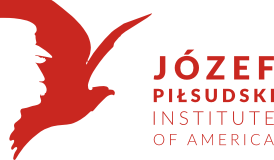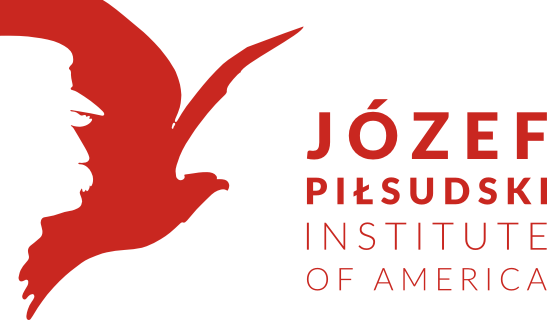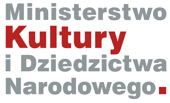Henryk Floyar-Rajchman
Born in 1893, Floyar-Rajchman was educated in Warsaw and in Krakow. From 1913 he belonged to the Riflemen’s Association. After the outbreak of the World War, he served in the Fifth Infantry Regiment of the Legion. In 1917, when the Legion refused to swear allegiance to the Central Powers, he joined the secret Polish Military Organization. He served as captain in the Polish-Soviet War of 1919-1920 as a staff officer in the First Legion Infantry Division.
After the war, Floyar-Rajchman attended the Staff Military College before being posted as Military Attaché in Tokyo (1928-1931). He was promoted to Lieutenant-colonel before leaving the service to take his first civilian assignment as vice minister and then minister of trade and industry (1933-1935). Was a member of Polish Parliament.
In September 1939 took part in the transport of Polish gold to safety. In France he was transferred to the reserve and left for New York. in 1941.In 1943 was a co-founder of the Institute, becoming a member of its Board of Directors, and a Vice President in 1947-1951. Died in 1951.
Franciszek Januszewski
Born in 1886. From 1905 active in the Polish Socialist Party. Faced with imminent imprisonment, he emigrated to the U.S.A in 1907. There he joined the Falcons, in Cleveland, Ohio where he finished the Business College, and then moved to Chicago where he was active in the National Defense Committee. In 1912 he moved to Detroit where he worked as advertising agent for the Polish Daily, becoming its owner in 1930. After the outbreak of World war II he was an active supporter of Polish independence. He became president of the National Committee of Americans of Polish Descent until 1946. He was a co-founder of the Pilsudski Institute in 1943 and became its first president (1943-44) Elected president again in 1951, he died in 1953.
Wacław Jędrzejewicz
Born in 1893. After completing his secondary education in Warsaw in 1912, he entered the Jagiellonian University. In 1913 he joined the Riflemen’s Association. He was co-organizer of the Polish Military Organization (1914-1915), and a member of its command. In 1915 he marched with the Warsaw battalion to join the Fifth Infantry regiment of the Legion. From November, 1918, he served as General Staff officer and in the 1920 war he was the officer in charge of the II Department of the General Staff of the Second Reserve Army under Gen. Sosnkowski. Jedrzejewicz took part in the Riga peace treaty negotiations in 1921. From 1925 to 1928, he was first the military attaché, then charge d’affaires of the Polish Republic in Tokyo. On his return to Poland, he became director of a department in the Ministry of Foreign Affairs (1928-1933), Assistant Secretary of the Treasury (1933-34) and the Minister of Education (1934-1935). During the September, 1939 war, he was in charge of evacuating Treasury assets, which he successfully brought to France. In spite of strenuous efforts, he was not accepted in the new Polish army in France. From 1941 he lived in the United States. He was the prime mover in the founding of the Pilsudski Institute in New York and became is first director (1943-48). In 1948, Jedrzejewicz was offered a teaching position at Wellesley College (Russian language and literature) and moved to Ripon College in 1948. On his retirement in 1963 he returned to New York and devoted himself completely to the Institute, as director (1963-1964), as Secretary (1971), Vice President (1972-76) and President (1977-78). In 1992 the President of Poland promoted him to the rank of Brigadier General. He was the author of many books and historical publications. He died in 1993.
Lucjusz Kupferwasser
Born in Poland in 1888, he was expelled from school for taking part in a strike in 1905. Facing arrest, he emigrated in 1910 to the U.S.A. settling at first in Cleveland, Ohio where he joined the Polish National Alliance. After the U.S.A. entered the war, he enlisted in the army and served as an air force mechanic. On the Western Front, Kupferwasser was severely injured in a gas attack. On his return to the U.S.A. he lived in Cleveland, Detroit and Chicago, taking an active part in Polish American organizations. He was one of the founders of the National Committee of Americans of Polish Dexscent (KNAPP) and from 1945 was one of its directors. In July, 1943, he was one of the founders of the Pilsudski Institute, and from October 1944 one of its Board members. In 1978 he was nominated an honorary member of the Institute. He was one of the most generous benefactors of the Institute. He died in 1983.
Stefan Łodzieski
Born in 1882, he came to the U.S.A. in 1902 and settled in Lakewood, Ohio, where he established a bakery, which eventually became a chain known as Lakewood Bakery. After the First World War he supported the Polish Welfare Association helping new immigrants. He was one of the founders of the National Committee of Americans of Polish Descent (KNAPP) and one of its directors, becoming its Vice President (1946-1951). In 1943 he was one of the co-founders of the Pilsudski Institute and became a lifetime member in that year, and a generous benefactor until he died in 1951.
Ignacy Matuszewski
Born in 1891, he studied philosophy at the Jagiellonian University, architecture in Milan and law in Tartu, Estonia. From 1914 he served in the Russian army, reaching the rank of staff captain. In 1917 he joined a Polish military organization in Petersburg and served in the Polish Corps under the command of Gen.Dowbor Musnicki, and subsequently joined the command of the Polish Military Organization in Kiev. After Poland regained its independence in 1918, Matuszewski served, with the rank of major in the II Department of the High Command, becoming its chief in 1920.
He took part in the negotiations of the Riga Peace Treaty with the Soviet Union. In 1924 he was promoted to colonel and served as military attaché in Rome and as envoy in Budapest. In 1931 he became Secretary of the Treasury and directed the evacuation of the Polish gold in September 1939. In France he volunteered for the Polish army as a private and was not accepted. He left for the U.S.A. in 1941. In 1943, he was one of the founders of the Pilsudski Institute, of which he was Vice President (1944-1946). He died in 1946.
Ignacy Nurkiewicz
Born in 1887, he came to the U.S.A. in 1900 and got an engineering degree at the Pratt Institute in New York. In 1920 he established a factory of fire fighting equipment (Stop Fire), which became one of the largest of its kind in the U.S.A. He served in many Polish American organizations, and in 1943 was one of the co-founders of the Pilsudski Institute. He worked in the Polish American Congress where he concentrated on various initiatives to help Polish Displaced Persons in Germany. He served as Treasurer of the Institute (1949-1951). In 1954 he was chosen to be the Grand Marshal of the Pulaski Parade. He served the Institute as Vice President (1963-1964), as Treasurer (1964-1965) and as President (1965-1966). He died in 1972.
Maksymilian Węgrzynek
Born in 1892, he finished high school in Mielec. In Rudnik on the San he organized the local unit of the Riflemen’s Association. In 1914, just before the outbreak of the war he emigrated to New York where he tried unsuccessfully to join the Polish Legion. He studied at Columbia University and in 1922, became the publisher of “Nowy Swiat” becoming its president in 1925. Wegrzynek was very active in Polish American affairs and served as Vice President of the Kosciuszko Foundation, and after the war became actively engaged in the struggle for Polish independence, in the National Association of Americans of Polish Descent and as co-founder of the Pilsudski Institute in 1943. In 1944 he was a founding member of the Polish American Congress becoming its Vice President. He died in 1944.















